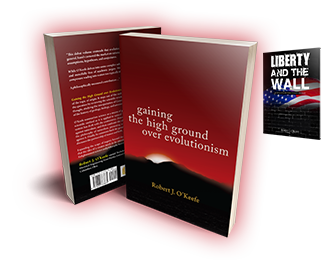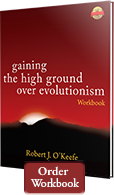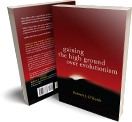Author
Author
What does it take to bring political liberty into reality and what is required to sustain it? Is religion a necessity or a hindrance? Is religious neutrality in public affairs possible? What do means of persuasion and the knowledge of good and evil have to do with political liberty? Do the well-considered views of the authors of the Declaration of Independence and the Constitution on the separation between church and state have any relevance today? Such questions are bypassed in the pragmatic expedience of politics. But they cannot be overlooked if the American experiment in liberty is to be understood and prolonged. Liberty and the Wall surveys these and other aspects of political liberty as it is enjoyed in the United States. It distills from history the essentials of natural right and consent of the governed, and the necessary virtues of self-reliance and self-governance. It analyzes the conditions and events that led to a formal separation between political rule and religion for the first time in history. The transition from government over people to people over government and the principles embedded within the Constitution and the Declaration of Independence are explored. Insights are drawn from the Federalist-Anti-Federalist and Lincoln-Douglas debates. The danger of utopian ideals and the place of appeal to authority higher than both people and government receive due attention. Liberty and the Wall steers clear of conventional, superficial controversies over religious symbols, speech, and practices on public property and in public institutions. Neither is there any pretense about easy fixes to public controversies. Far more germane to the subject are underlying conflicts of values and senses of the good and just in matters of public interest, as opposing metaphysical views contend for political supremacy below the level of popular awareness. Politics is infused with values and concepts of right. The determination of the valuable, the right, and the just is far more the commanding question.

The controversy surrounding the origin of the universe, earth, and all living things is an ongoing debate in the public sphere. In Gaining the High Ground over Evolutionism, author Robert J. O’Keefe presents analysis leading to the realization that to obtain knowledge of origin is also to discover the origin of knowledge. Gaining the High Ground over Evolutionism recognizes the ideological nature of the topic of origin. It steps out of the realm of science and begins to deal with the question by reviewing the scientific revolution and its implications in Western thought, studying the interpretation of Genesis 1, and describing relevant aspects of the history of geology, biology, and astronomy.
O’Keefe summarizes science as a means of gaining knowledge and discusses the scientific method as it is applied to natural history. He examines how the court system has dealt with the controversy; draws points from C. S. Lewis’s argument against naturalism; and then confronts the ideology behind evolutionary science, the philosophy of naturalism, presenting what he sees are the best arguments against it. Finally, he summons back the grounds for the authority of the Bible and discusses the partnership of reason and faith. Expanding the scope of inquiry beyond the confines of science, O’Keefe shows that the idea of a creator needs to be attended with more seriousness than post-Enlightenment science and philosophy have ever thought necessary.










